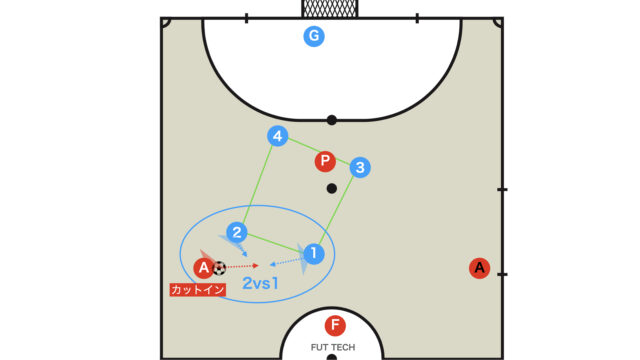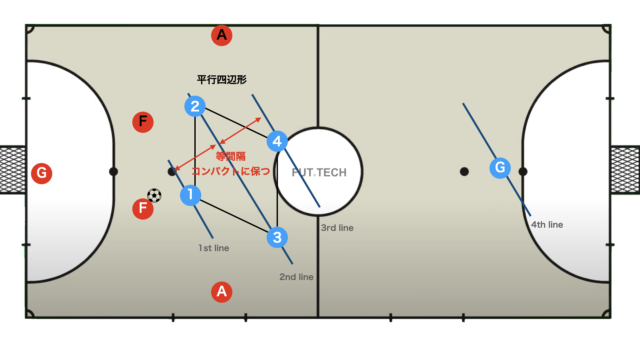In competitive futsal, when it is possible to press from the front, it is common to maintain a Y-shaped (Υ) formation and defend in a zone-like manner—a method that many teams employ.
However, there may be quite a few who feel, “I don’t know exactly how to defend and I end up messing up.”
When I first started playing futsal, I had no idea how to defend in a Y-shaped zone and ended up inconveniencing my teammates.
For those with such concerns, this article provides a thorough explanation—complete with illustrations and videos—of the roles and defensive methods of the first three players (the defensive triangle) in a Y-shaped zone DF.

Initial Positioning (When the ball is with the fixo)
Man-to-Man Marking
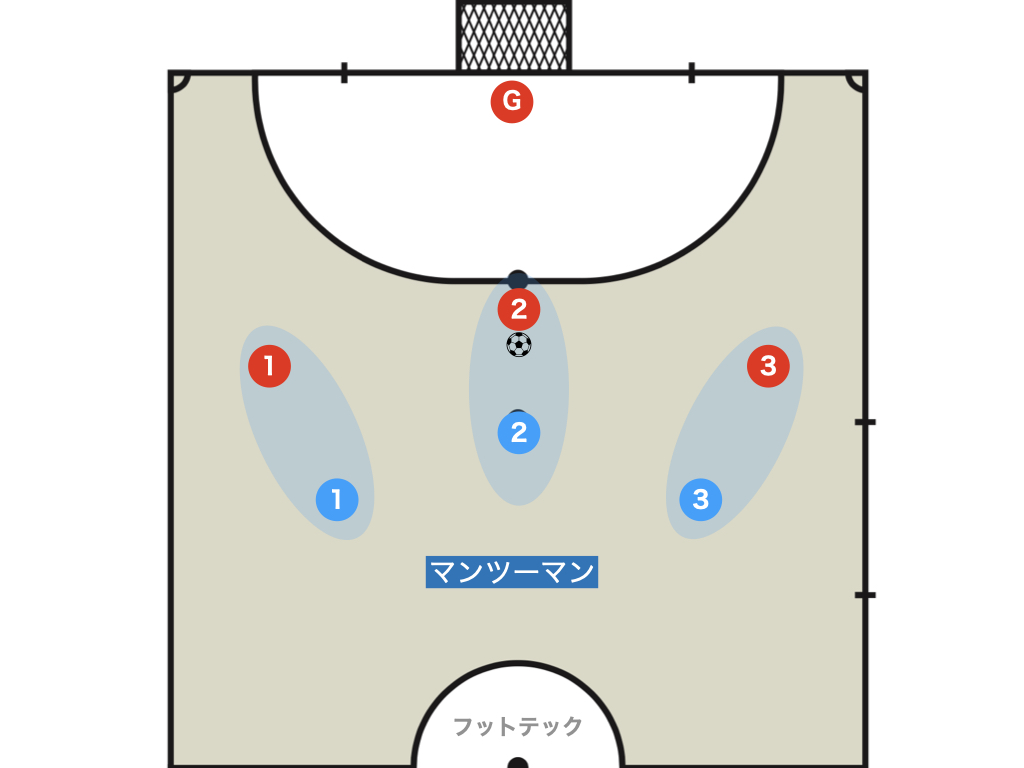
Initially, teams employ man-to-man marking, and once the ball goes to the sidelines, they switch to an alternative (selective) defense by establishing multiple lines—a system also adopted by the Japanese national team.
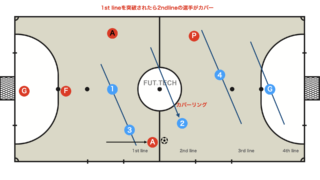
Limiting the Sides from the Start & Establishing Multiple Lines
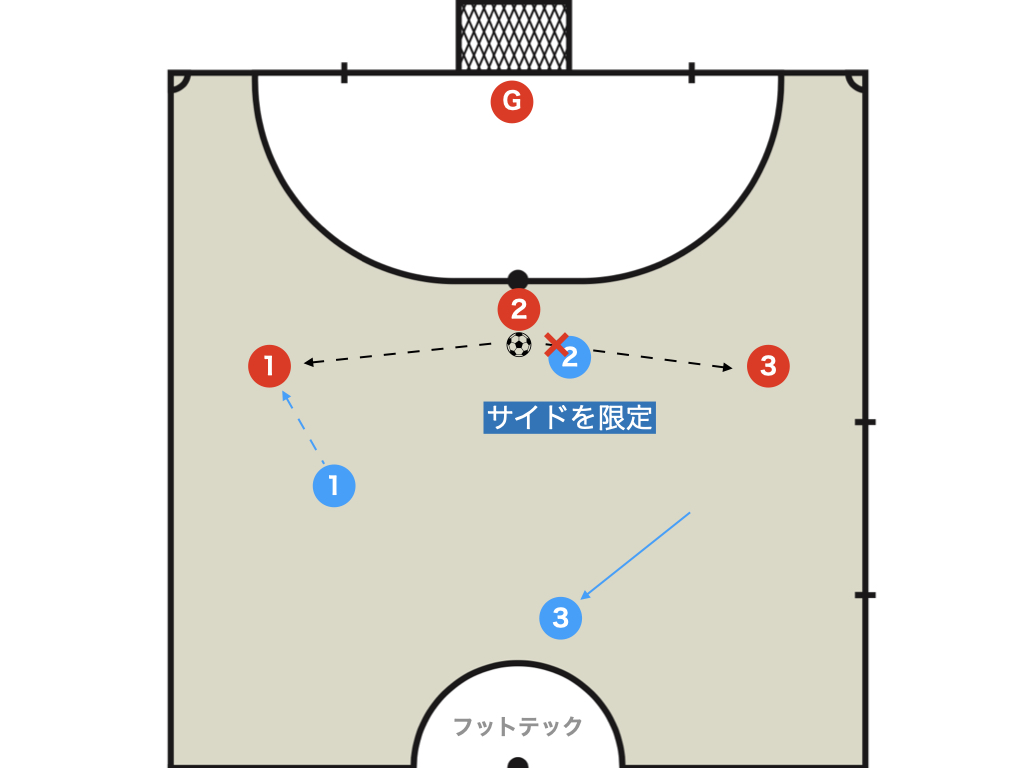
By limiting the sides from the start and establishing multiple lines, the 1st DF can anticipate and begin pressing at an earlier stage.
Caution is Needed During Goal Clearances
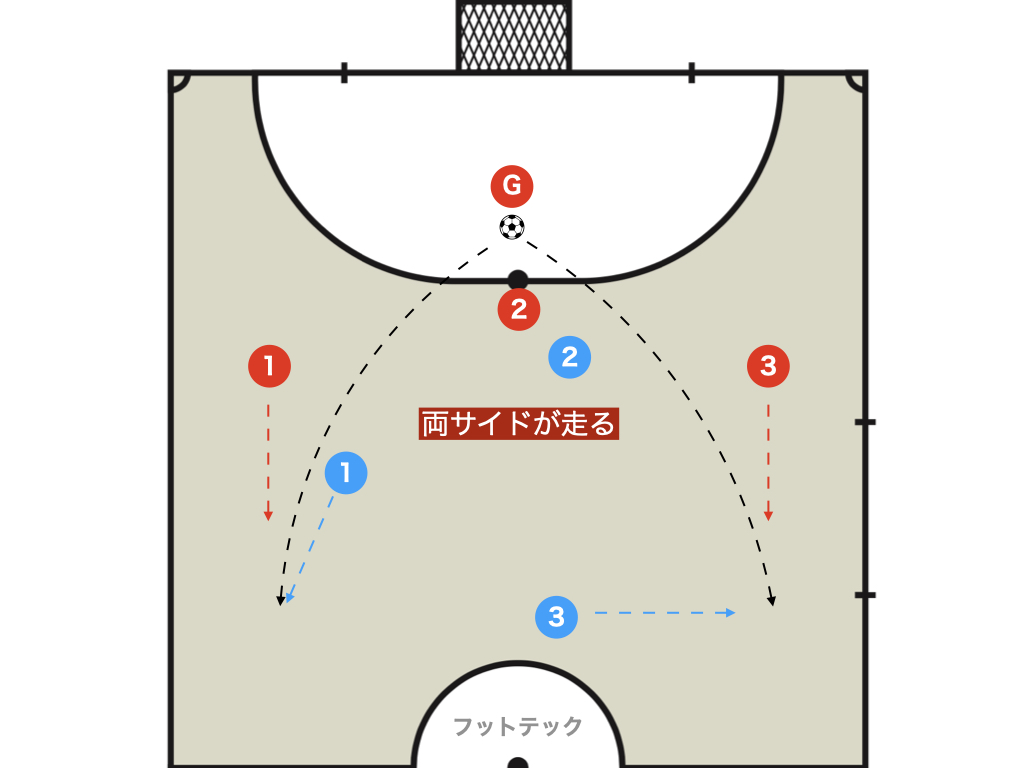
However, if you try to form a Y-shape from the start during a goal clearance and both alas rise up, it becomes necessary to clearly designate who will handle the man-to-man marking.
For this reason, many teams initially opt for man-to-man marking and then switch to multiple lines once the ball moves to the sidelines.
Defensive Roles
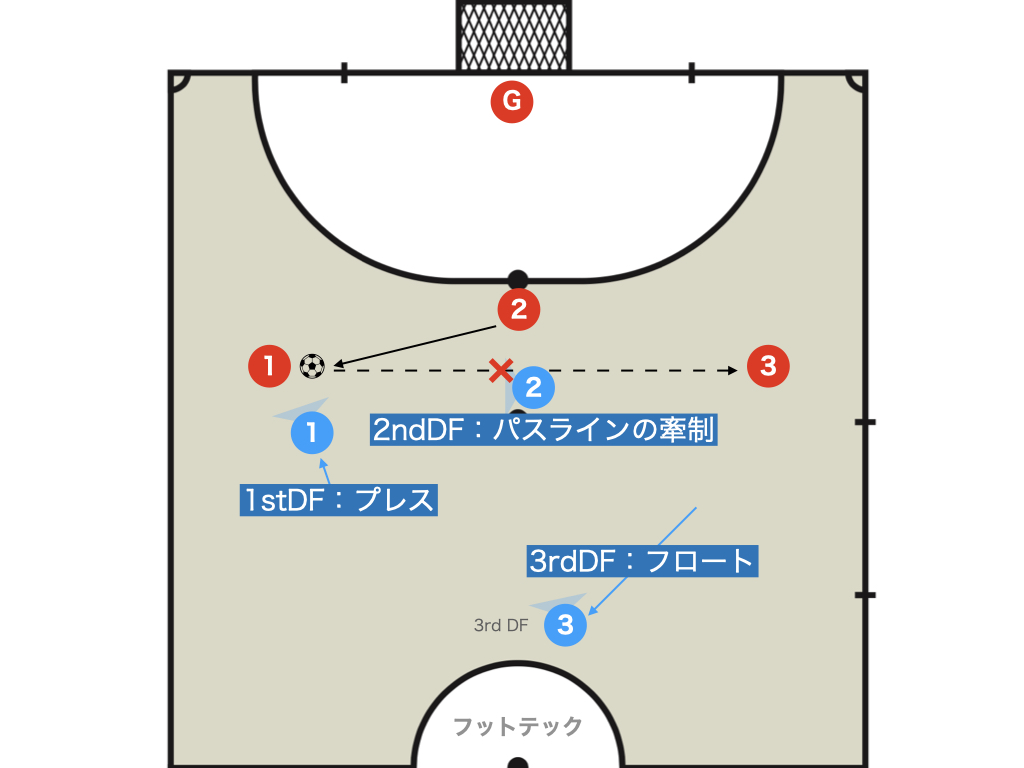
- 1stDF: Press the ball holder
- 2ndDF: Mark the skip pass route (ala-ala)
- 3rdDF: Float (covering)
It might be easier to understand by watching video footage, so please view the Japanese national team’s explanatory video.
Opportunities for a Steal

When the 1st DF is able to press, the passing lanes to the rear (via the Parallera) or between the lines are closed, so the 2nd DF stays back to cover the lateral passing lane.
Thus, when the 1st DF is pressing, it is desirable for the 3rd DF to call out “Stay” as a command.
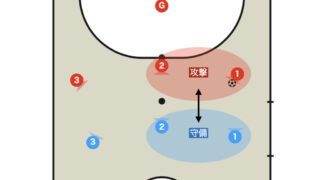
Response When the Space Between the Lines is Exploited
As a countermeasure against defenses that establish multiple lines, it is common to utilize the space between the lines (Between the Lines (Entre)).
The defensive approach against passes between the lines differs depending on whether the 1st DF is able to press (i.e., whether the passing lane between the lines is closed), so each scenario will be explained.
When the 1st DF Cannot Press
Good Example
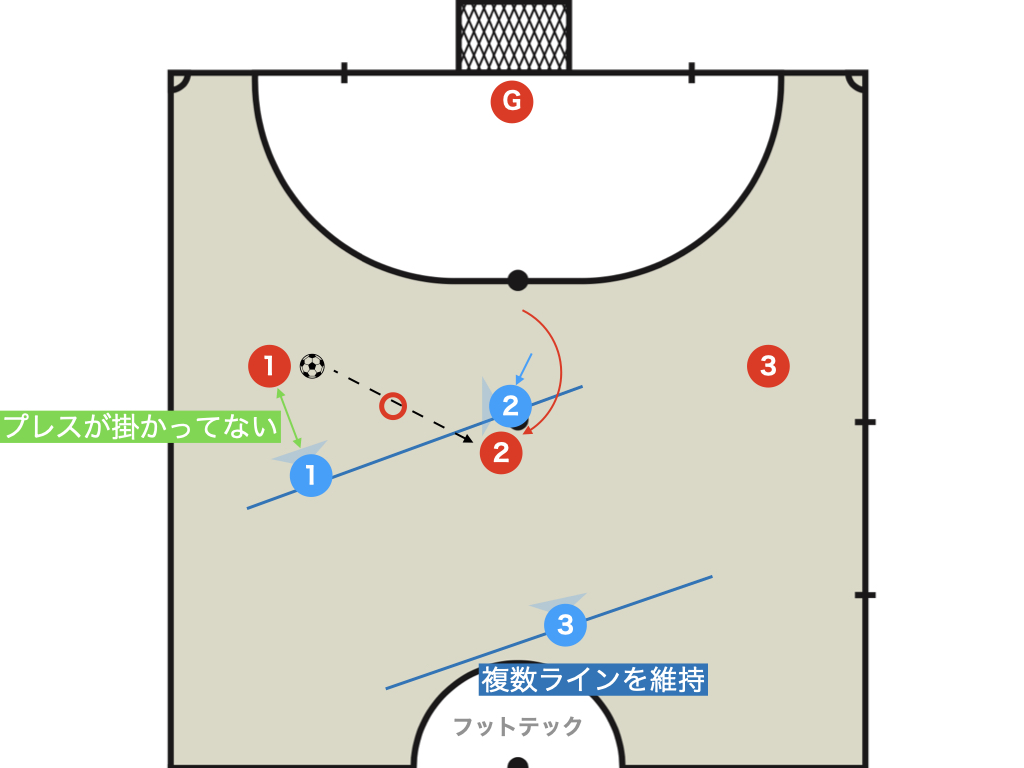
If the 1st DF is not closing the passing lane between the lines, it is essential for the 2nd DF to cover that space to maintain the multiple defensive lines.
Bad Example
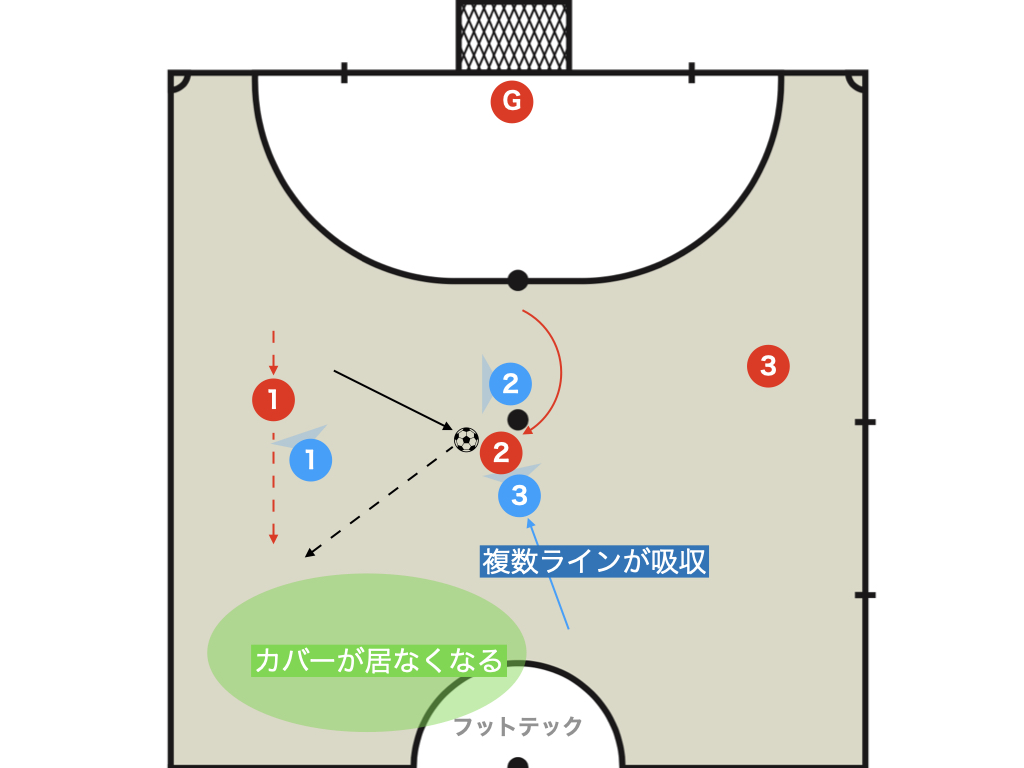
If the 3rd DF covers the space between the lines, the multiple defensive lines collapse into one, making it easy for the opponent to break through with a duo space attack.

When the 1st DF Is Able to Press
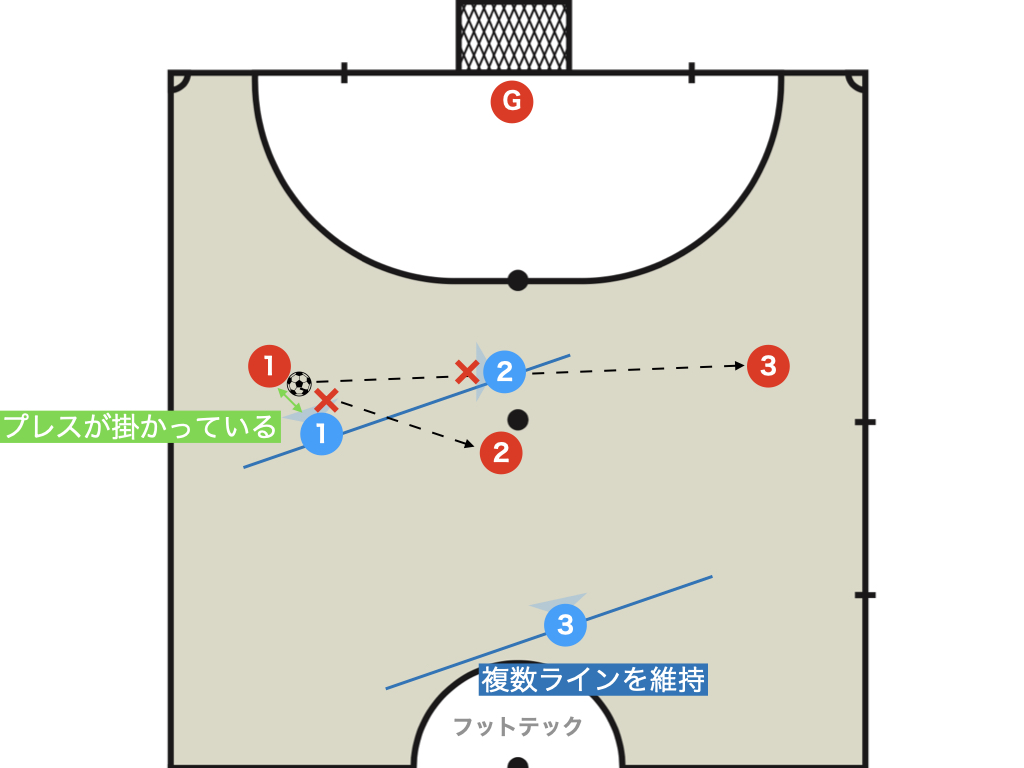
When the passing lane between the lines is clearly closed by the 1st DF, the 2nd DF should ignore the players in that area and instead cover the passing lane of the ala-ala (from red 1 to red 3) while going for the ball.
As you can see, since the defensive method must be adjusted based on the intensity of the press and the opponent’s situation, it is extremely important for the 3rd DF to communicate the state of the pitch from behind.
It is common for the 3rd DF to call out commands such as “Stay” or “Keep up!”.
When a Pass is Delivered Through the Ala-Ala (Skip Pass)
In principle, the 2nd DF is responsible for covering the ala-ala pass; however, this section explains the countermeasures if the pass is completed.
When the 2nd DF Can Keep Up: Defensive Slide
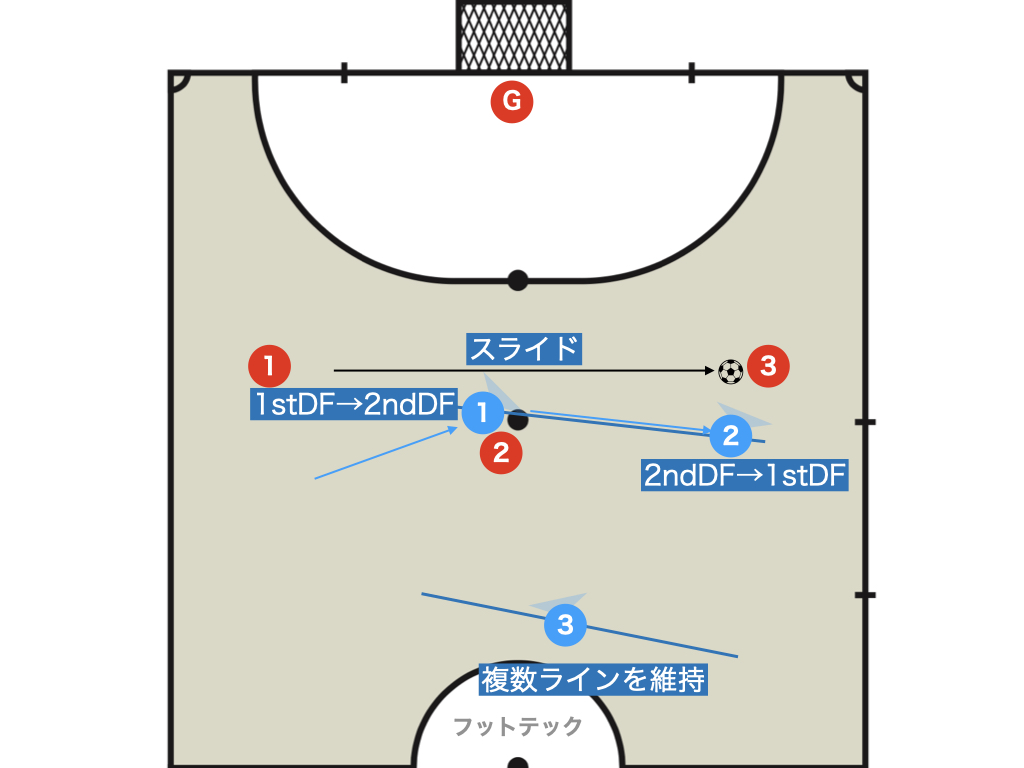
If the pass is not advancing too far, as shown in the above figure, the 1st DF and 2nd DF should slide and swap roles.
Essentially, for backward (negative) ala-ala passes, sliding is the appropriate response, whereas for parallel or advancing passes, a defensive rotation—as described next—is preferable.
When the 2nd DF Cannot Keep Up: Defensive Rotation
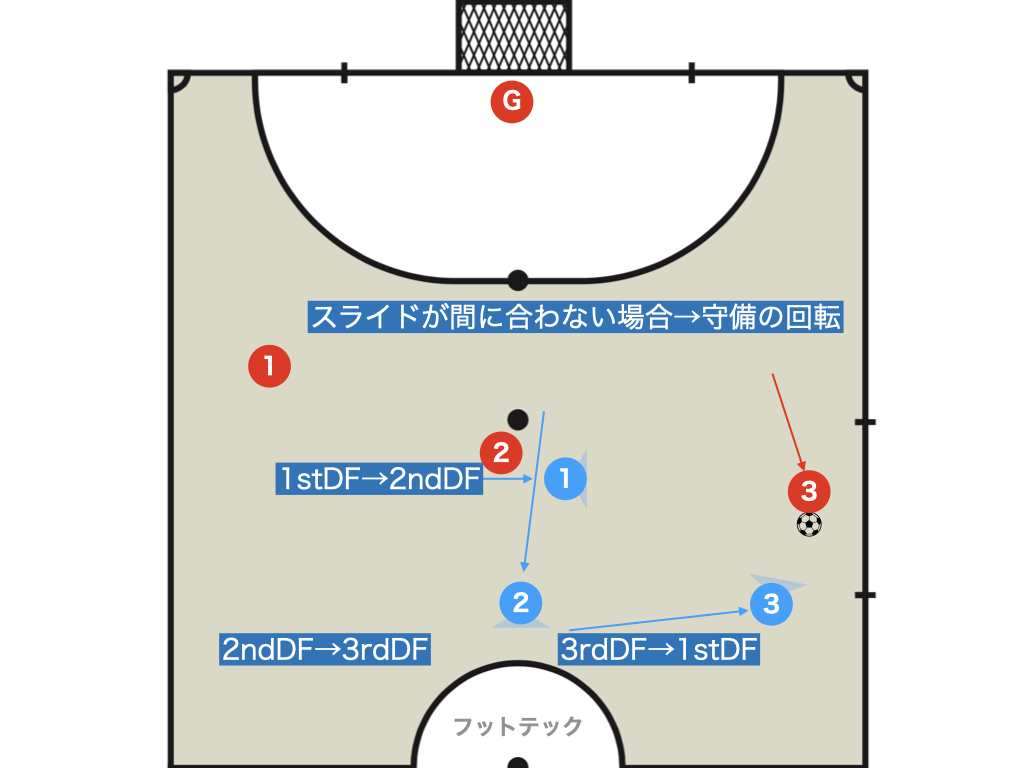
If the opponent advances and the slide is insufficient, a defensive rotation should be employed.
- Blue #3: 3rd DF → 1st DF
- Blue #2: 2nd DF → 3rd DF
- Blue #1: 1st DF → 2nd DF
When the 1st Line is Broken Through: Defensive Rotation
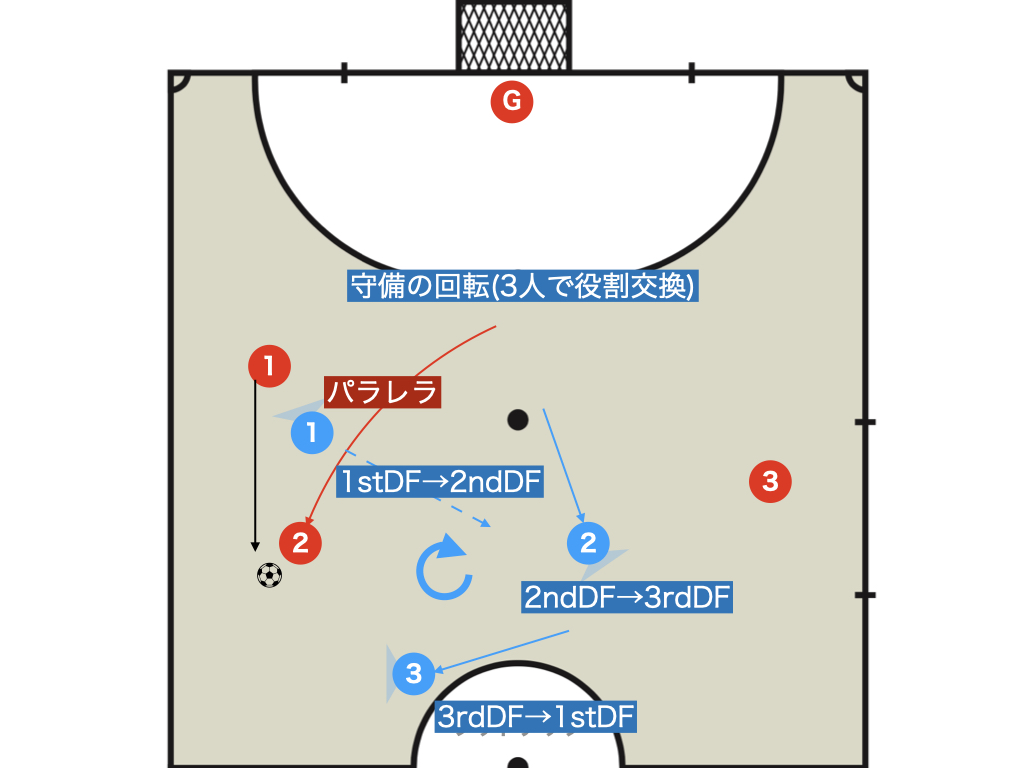
If the opponent breaks through the 1st DF via a duo maneuver or dribbling, the defense should rotate to reestablish multiple lines.
Defensive Feints
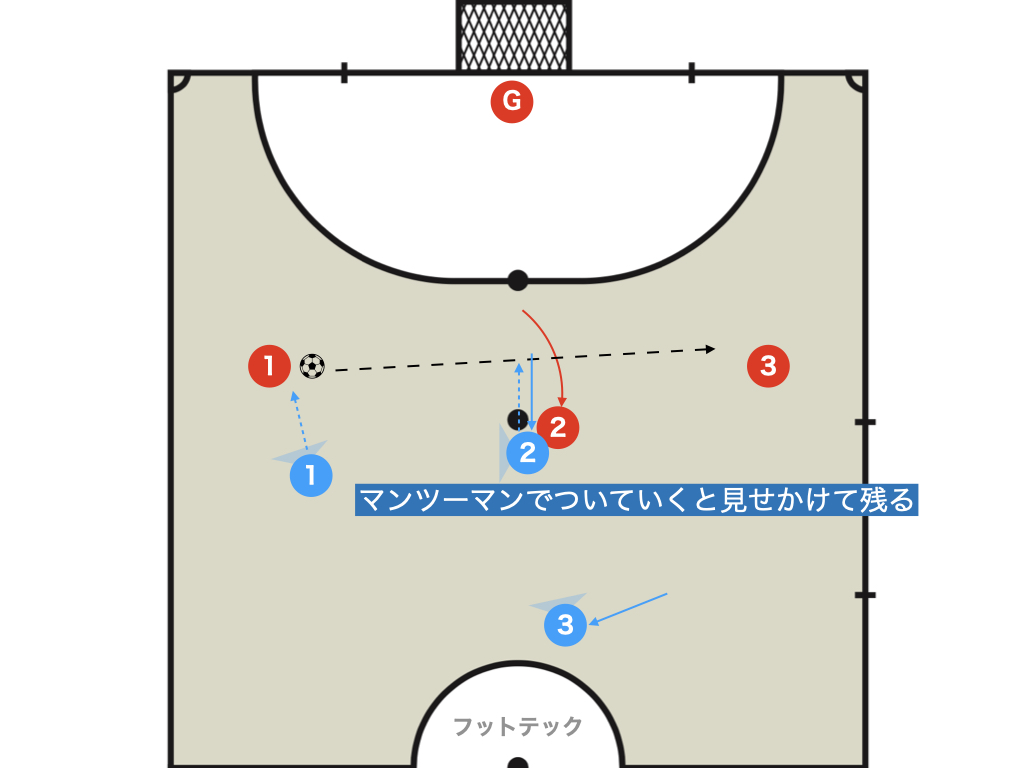
Feigning man-to-man marking while holding one’s position makes interceptions easier.
Thus, a defense that alternates between a man-to-man DF and a multiple-line DF based on the situation is called an alternative DF.
Summary
What did you think?
While many believe that defending in a zone is the norm in futsal, numerous national teams overseas—renowned for their individual talent—employ man-to-man defense.
In fact, it wouldn’t be an exaggeration to say that man-to-man DF represents the cutting edge of defensive tactics.
However, for teams lacking individual brilliance, it is essential to defend in an organized, zone-like manner.
Take this opportunity to thoroughly understand and implement each role within the defensive triangle.
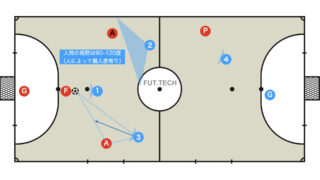
Thank you very much for reading this article to the end.
If you found this article useful, please consider sharing it using the social media share buttons above.
We regularly share valuable insights on futsal tactics on Twitter, so if you haven’t followed us yet, we’d appreciate your support!
We are committed to raising the level of futsal in Japan by sharing high-quality information through discussions with individuals who have coaching experience in the F.League and overseas.
If you have any questions or notice any mistakes, feel free to leave a comment below.
We update our articles regularly, so if you’d like to keep reading, please bookmark our site or search for “FutTech”!
